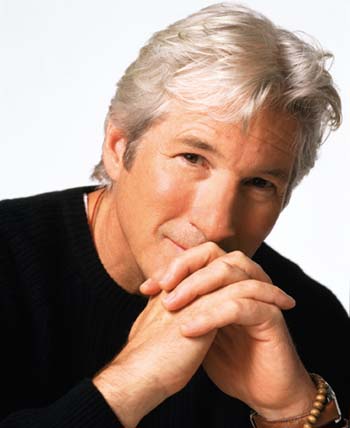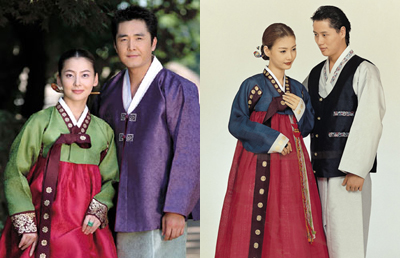Now, for some background: China has a population of about 1.4 billion. Two million of that number are the ethnic Koreans living in China. About half of them live in Yanbian Prefecture in Jilin province in northeastern China. A visual reference:

It's an autonomous prefecture specifically because of the high number of "joseonjok" (Chinese people of Korean descent), as with other parts of the country where any of China's 56 recognized minority groups live in dense populations. I don't have sources on this, but I assume many of them are North Koreans who fled when they had the chance. A significant portion of China's landmass is actually taken up by these autonomous prefectures/regions/etc:

All that green out in the northwest is Chinese Muslim territory.
The problem with these "autonomous prefectures" is that despite the name, they enjoy something of a second-class status in terms of legislature and so forth; they are actually more restricted than non-autonomous prefectures. You'll notice that Tibet is one of those autonomous regions. So autonomous is actually not-really autonomous. Apparently every day is opposite day in the PRC.

In case you didn't know which one was Tibet, I'm saving you the embarrassment of having to look it up. You're welcome.
This is all to say: China may or may not respect the rights, desires, and wishes of the joseonjok living within its borders. It's safe to say joseonjok probably get the short end of the stick. And they don't even get the fringe benefit of American celebrities

Free Tibet, free Mandela, free Mumia. Whatever.
China has listed other distinctly Korean things on their "Intangible Cultural Assets" list. Quoting from the English version of the Chosun Ilbo:
Earlier, China had designated as its own cultural heritage the traditional Korean feast celebrating one's 60th birthday, traditional Korean wedding ceremony, the traditional Korean dress hanbok and a farmer's dance, saying they are practiced by ethnic Korean in northeastern China.

Not Chinese.
Unfortunately, the news trail is difficult to follow beyond the superficial responses of REACTIONARY KOREAN RAGE, so I don't trust that everything coming to the top is unbiased. Unsubstantiated rumors are that China wants to make a push to put (this version of) Arirang on the UNESCO Intangible Heritage List as well—for China. There's shadowy Internet talk about how this is related to China's Northeast Project and possible plans to absorb North Korea.* I can't find anything to back this up, so at the moment I'll give China the benefit of the doubt. All I know for certain is that China has included a bunch of Korean stuff on its list of intangible cultural assets already (presumably in a totally domestic, "for-our-use-only" way), and has now gone and added a version of Arirang to the list.
Roboseyo (a blog worth reading whether or not there's controversy) asserts: "Nobody owns Arirang."
The Korean begs to differ.
Nonetheless, Roboseyo stands by his point. In a four-part series, no less.
So. Does China have any claim to ownership of Arirang? In any capacity? What about hanboks or farmer dances or 60th birthdays? Who wins, Roboseyo or The Korean?
Well, first of all, what the heck is Arirang?
Here is the hotly-contested Arirang. Or well, not necessarily the specific version currently under contention. I don't think this is the version China intends to lay claim to, but I'm also not sure if this is "the" version of Arirang (that is, the Seoul version; the most popular one).
You can look on YouTube and find hundreds more.
It is old. The all-knowing Wiki says the "standard" version of Arirang is about 600 years old, though it also says there are other folk versions that are even older. Importantly: it is old. It is old and it is a song every Korean knows and probably loves—or at least associates with being Korean, with their country, with their family, with the assorted accomplishments and achievements of their people, with their history that stretches back for thousands of years.
I think North Americans have a tough time understanding things that are just so old. We absolutely have culture, and we have songs and traditions and celebrations that are American (or Canadian) as much as there are are songs and traditions and celebrations that are Korean.
But at the same time, they are young practices. And because of their youth they are inherently plastic, flexible, transnational. I heard a performance of Handel's Messiah and Irving Berlin's White Christmas by a Tico choir while I lived in Costa Rica. I wasn't outraged at the theft of my American/anglophone culture; just mildly amused at a bunch of Ticos singing about their desire for a white Christmas in a tropical climate. The closest thing I ever came to cultural theft outrage was the recent cellphone commercial that used images of Barack Obama, Martin Luther King, and the fucking Greensboro riots to sell their product—but that was race rage, not cultural theft rage. I don't think there's a single American cultural item at whose cultural appropriation I would be utterly and grossly offended. America's culture has all come from somewhere else to begin with, after all.
Part of the reason for this is that those cultural items are practices that have come into fruition in a relatively globalized age and place: the great composers of Europe all had news of what the others doing and developing, even if not instantaneously; Shakespeare set many of his plays in locales very far from England. There was no radio, no TV, and little contact with the outside international world in Korea when Arirang was establishing its hold over the Korean mindshare. It developed in an extremely Korean setting and has continued to be associated with "being Korean."

So basically wait 600 years and Americans of the future will be listing this among their "Intangible Cultural Assets".
I think we also have a tough time understanding what it's like to be a minority culture. (Minorities within the US or Canada probably get it, at least a little bit better.) It's kind of easy to roll your eyes and scoff about China's claim on Arirang, or even to respectfully and intelligently argue for it, when you've never experienced your identity being the non-normative one; when you've never been a colonized people, or a citizen of a country forcibly divided in half exclusively for the benefit of other outside powers. I'm not trying to play the race card here, but my point is that if a significant number of Koreans are pissed off about this, there might actually be a good reason to be pissed off. And as a white guy from a relatively privileged nation, telling them they shouldn't be comes off as a wee bit patronizing.
(If you couldn't tell, I tend to fall more in line with The Korean's argument than Roboseyo's.)
There are a few factors, however, that mitigate things, some of which Roboseyo already outlined so I'll try not to repeat them:
- Is China listing Arirang as a whole, or only the Janbian variant thereof?
- Are they listing it domestically, or pushing for an international recognition of (one particular version of) Arirang as Chinese?
- Are they doing this to make amends with the joseonjok in China, or for less altruistic reasons?
- Are they doing anything else to foster better relationships with the joseonjok?
I think those go a long way towards deciding if China's actions are laudable, neutral, or reprehensible. My own take on it:
On the face of it, China's attempt to list anything as distinctly Korean as Arirang** in their own list of Intangible Cultural Assets smacks of hubris. Especially when you consider the attitude China has towards contemporary international IP laws (to which I think this is an analogous situation), this can only make China look bad.
That said, I do think China has a claim on any traditions that have arisen among joseonjok people since their move from the Korean peninsula. Culture doesn't appear in a vacuum, nor does it change or adapt in one. No doubt there are plenty of "Intangible Cultural Assets" that belong distinctly and uniquely to Chinese people of Korean descent, and the credit for those assets goes just as much to their Chinese environment as it does to their Korean heritage.
Plus, if China is doing this as a step to recognize the value of their Korean citizens, and to assign a value of worth and respect to the native culture of their immigrant/minority groups, then this should be encouraged. Presumably it could open up the door to Yanbian and the other autonomous prefectures actually becoming autonomous. Not opposite day, PRC-style "autonomous." This is good, and this is a case where I think it would be worth Koreans to bite their lip and deal with it.
It's my own estimation that this take is a bit too Pollyanna, however. I admit I may be buying into the modern-day "Yellow Peril" hype that gets propagated around the US ("The Chinese own us! Evil Commies!") but the current Chinese government doesn't really do a whole lot of things that are in any way commendable. Why they would suddenly reverse SOP on this particular topic?
But where does Arirang specifically fit in with all of this? If it is significantly different than the versions of Arirang that are well-known on the peninsula (above and below the 38th, by the way), then can China still lay claim to it? Or is it simply just too Korean?
I think there's a simple litmus test you can apply in this situation. When Korean people in China sing Arirang, do they think, "Wow, I feel so Chinese right now!"? When Irish immigrants, and second- and third-generation Irish in the US sang Black is the Color of my True Love's Hair, did they think, "Wow, I feel so American right now!"? Like Roboseyo asserts, the people who practice the culture should be in charge of labeling and preserving it, not governments.
(Of course all this discussion of "Who owns Arirang?" is so much less important than doing what we can to help the DPRK normalize, excise the corrupt regime, and save its people. That goes without saying. But culture is still important!)
*Why would one want to absorb one of the most backwards, bankrupt, chaotic countries in the world? Two reasons. One, upon total regime failure and national collapse, the flood of DPRK refugees into China would be extremely disruptive, and quietly absorbing the country minimizes that damage (or even turns it into an advantage: lots of cheap, educated labor!). Two, North Korea has vast mineral resources. Vast as in, valued in the trillions of US dollars (give or take, obviously it's hard to get solid data). They just lack the means and manpower to extract it due to, you know, starving to death.
**I know that the burden of proof is on me to demonstrate how Arirang is "distinctly Korean" but I don't feel like going into that right now. My proof is this: most Koreans feel that it is part of their culture as Koreans (as opposed to part of their culture as Asians), therefore it's something uniquely Korean.



No comments:
Post a Comment